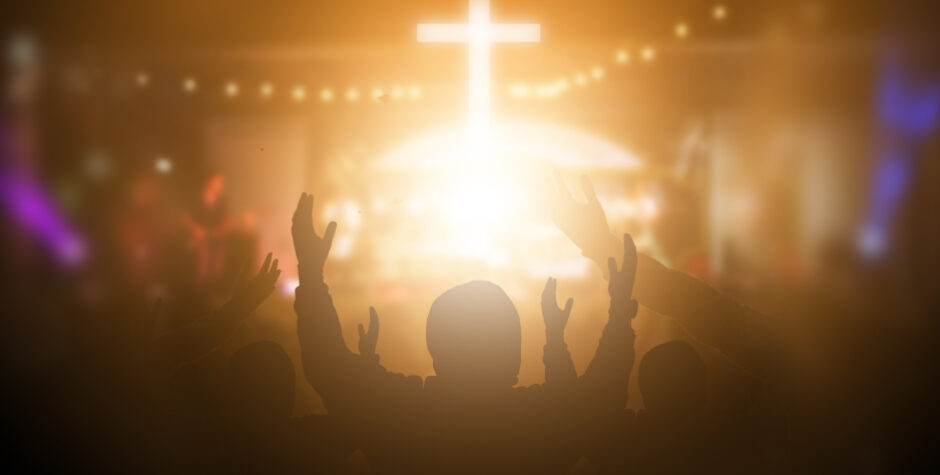California Finally Capitulates and Lifts Worship Ban on Churches
This week – approximately ten (10) months following implementation of an outright ban on worship in churches – California has finally lifted the unconstitutional restriction.
As you might recall, on July 1, 2020, California issued a mandate that places of worship “must therefore discontinue singing and chanting.” This ban on worship initially only applied to churches – not to protests (which Governor Newsom consistently supported), restaurants, wineries, shopping malls, child care centers, day camps, or to Hollywood.
Just fifteen days after the worship ban was announced, the ACLJ filed suit against California and local health authorities. While California quietly updated its COVID restrictions so that some other indoor gatherings would contain a similar ban as that placed on indoor places of worship, many indoor venues remained free to host performers and singers. Notably, Hollywood was never placed under these same restrictive measures. Instead, it has been permitted all of this time to “self-regulate” without any formal restrictions. On its website, California noted that the industry must simply operate “subject to approval by county public health officers . . . and must abide by safety protocols agreed to by labor and management.”
In sum, while places of worship were subjected to mandates and bans, Hollywood negotiated the terms under which it would continue to operate. As we point out in our most recent filing in court, the entertainment industry, with California’s blessing, has been filming in-person singing competitions across the state since at least October 2020, during which cast and crew members were permitted to sing and chant without wearing masks.
This double standard was first brought to the Supreme Court’s attention in February of this year in South Bay United Pentecostal Church v. Newsom. Justices Thomas and Gorsuch, joined by Justice Alito accurately noted, “[O]nce more, we appear to have a State playing favorites during a pandemic, expending considerable effort to protect lucrative industries (casinos in Nevada; movie studios in California) while denying similar largesse to its faithful.”
The Supreme Court further warned that:
[I]f Hollywood may host a studio audience or film a singing competition while not a single soul may enter California’s churches, synagogues and mosques, something has gone seriously awry.
Unfortunately, the Supreme Court did not have all of the information necessary to issue a ruling on the singing ban, thus the application for injunctive relief on the issue was denied.
In the updated regulations announced on April 23, 2021, California states that the change in regulations comes “[i]n response to recent judicial rulings, effective immediately,” and indicates that both location and capacity limits on places of worship are no longer mandatory and “the restrictions on indoor singing and chanting are recommended only.”
Indeed, the Supreme Court has – on five separate occasions – had to address California’s ongoing constitutional violations. In its most recent opinion, the Court noted:
This is the fifth time the Court has summarily rejected the Ninth Circuit’s analysis of California’s COVID restrictions on religious exercise. See Harvest Rock Church v. Newsom, 592 U. S. ___ (2020); South Bay, 592 U. S. ___; Gish v. Newsom, 592 U. S. ___ (2021); Gateway City, 592 U. S. ___. It is unsurprising that such litigants are entitled to relief. California’s Blueprint System contains myriad exceptions and accommodations for comparable activities, thus requiring the application of strict scrutiny. And historically, strict scrutiny requires the State to further “interests of the highest order” by means “narrowly tailored in pursuit of those interests.” Church of Lukumi Babalu Aye, Inc. v. Hialeah, 508 U. S. 520, 546 (1993) (internal quotation marks omitted). That standard “is not watered down”; it “really means what it says.” Ibid. (quotation altered).
The Supreme Court also criticized California’s disturbing track record of “moving the goalposts,” stating:
Government actors have been moving the goalposts on pandemic-related sacrifices for months, adopting new benchmarks that always seem to put restoration of liberty just around the corner.
Following each Supreme Court decision, and only once forced to do so, California has reluctantly lifted some small portion of its oppressive, unconstitutional restrictions on religious liberties.
While the removal of the singing ban by California is certainly a victory to be celebrated, California officials “retain authority to reinstate the heightened restrictions at any time.” Thus, our battle is not over.
The ACLJ will continue to fight to ensure that California’s unapologetic abuse of power and infringements on religious liberties cannot happen again. We have already entered discovery in our case, one of the first such cases to do so, and we will get to the bottom of this infringement on the most basic tenets of religious liberty – the right to worship in one’s own church.
